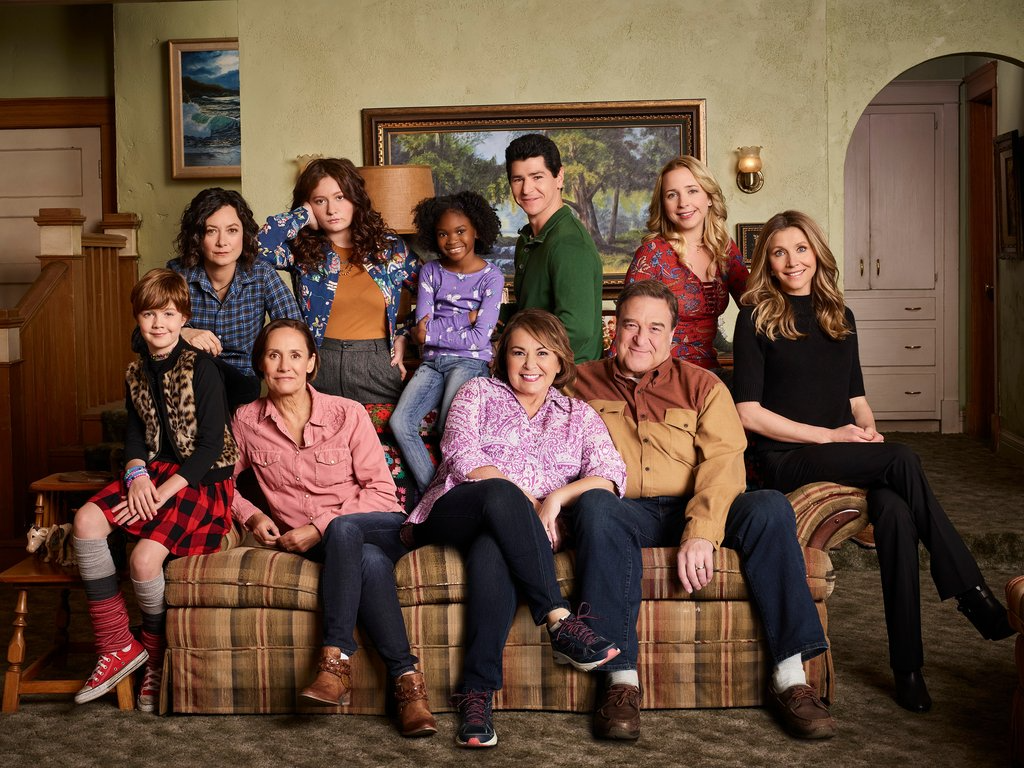
From Family Drama to Social Commentary – Why Roseanne Was the Most Groundbreaking Sitcom of the 90s
For nearly a decade, Roseanne was a force to be reckoned with in the television world, breaking boundaries, tackling difficult topics, and becoming a cultural phenomenon that defined a generation. From its first episode in 1988, it redefined what a sitcom could be. Not just a series about family dynamics, Roseanne set a new standard for TV comedies by blending humor with hard-hitting, real-life issues, giving it an authenticity that other sitcoms lacked.
A Family Like No Other
The series followed the Conner family, an ordinary working-class household in Lanford, Illinois, led by the sharp-witted and often sarcastic matriarch, Roseanne Conner. Unlike the idealized families portrayed on other TV shows at the time, the Conners’ life was real—imperfect, messy, and full of the struggles of everyday life. Roseanne Barr, who not only starred in the show but also served as the creator and executive producer, brought her own brand of no-nonsense humor and relatability to the character.
The family’s financial struggles, marital issues, teenage rebellion, and even Roseanne’s own struggles with body image made the show feel like a reflection of the lives of many viewers. It wasn’t just about laughs; it was about the struggles, victories, and everything in between. The show’s ability to balance heartwarming moments with real-world challenges resonated with millions.
Tackling Social Issues with Humor
One of the most striking aspects of Roseanne was its ability to address social issues head-on. While many sitcoms in the 90s stayed clear of controversial topics, Roseanne embraced them. The show explored everything from issues like domestic violence, racism, and mental health, to LGBTQ+ rights, gender roles, and the struggles of the working class. Each episode felt like an important conversation about societal issues, something that was rare for sitcoms at the time.
The show’s portrayal of the LGBTQ+ community, particularly the character of Roseanne’s sister Jackie, was groundbreaking for the time. In a period when many shows refused to address LGBTQ+ topics or only did so in a very limited way, Roseanne brought these issues to the forefront. This progressive approach was a game-changer for TV, showing that comedy could be used not only to entertain but also to provoke thought and start meaningful discussions.
The Legacy of Roseanne
More than just a sitcom, Roseanne was a cultural touchstone. Its impact can still be felt today. The show’s fearless approach to difficult topics paved the way for other shows that were willing to take risks and delve into more complex and controversial subject matter. Roseanne set a new bar for what a TV show could achieve, and its legacy lives on in the shows that followed.
In 2018, when the show was rebooted with much of the original cast returning, fans were thrilled to see Roseanne Conner back on their screens. The reboot wasn’t just a nostalgia trip; it was a reflection of the changing world, dealing with topics like the 2016 election, political polarization, and the evolving nature of American families.
Why You Need to Watch (Or Rewatch) Roseanne Today
If you haven’t watched Roseanne or haven’t seen it in a while, now is the time to revisit the show. It’s more than just a sitcom; it’s an exploration of family, identity, and the human experience. Whether you’re new to the series or a lifelong fan, Roseanne continues to offer a refreshing take on real-life issues, all while making you laugh out loud. Its timeless characters, groundbreaking storylines, and unapologetic approach to social commentary make it a must-watch for any TV lover.
In a world of perfect, cookie-cutter families on TV, Roseanne was a breath of fresh air. It showed us that real families are flawed, and that’s what makes them so relatable. If you haven’t watched it yet, what are you waiting for?
